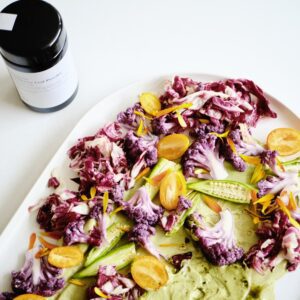
Ashitaba: Japan’s Longevity Green and the Science Behind Its Unique Chalcones
Ashitaba (Angelica keiskei) is often described as a “longevity herb.”

Kick-start, energise, rejuvenate
All carefully planned and prepared to help nourish, reset and rejuvenate the body and mind.

Can dogs eat Medicinal mushrooms?
Discover the natural healing potential of medicinal mushrooms for dogs and explore how these extraordinary fungi can improve your furry companion’s well-being. With a rising interest in alternative remedies, medicinal mushrooms have gained popularity for their immune-supporting and vitality-promoting properties.
There are some toxic mushrooms for dogs and it is important to practice caution. Some mushrooms are not only safe for them to eat but they offer a myriad of advantages, including antioxidant support, stress reduction, anti-tumour properties, immune system enhancement, cholesterol regulation, and much more. Embrace the power of mushrooms to promote overall well-being and unlock a healthier life for you and your furry friend.
Benefits for Canine Health:
Some examples of toxic mushrooms include:
Safe Mushrooms for Dogs:
Incorporating Medicinal Mushrooms into Your Dog’s Routine:
To ensure the best results and safety for your dog, consult with a veterinarian experienced in holistic or integrative medicine before introducing medicinal mushrooms. They can offer guidance on appropriate dosages and specific mushroom selections tailored to your dog’s unique needs. A general guideline is to administer a dosage of 20mg to 50mg per kilogram of body weight. For example, for a 40kg dog, you can give them 1/8 to 1/2 teaspoon of medicinal mushrooms on a daily basis.

Ashitaba (Angelica keiskei) is often described as a “longevity herb.”

In our modern wellness landscape, “biohacking” often evokes images of

If you’re looking for a natural way to support blood
Copyright Shoku Iku © 2024 | All Rights Reserved.
The statements on this website have not been evaluated by the TGA or FDA. These products are not intended to diagnose, treat, cure or prevent any disease.
Sign up to receive your discount.